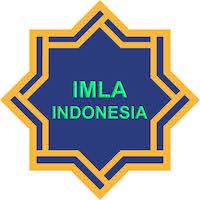ISTIFĀDAH AL-TA'LĪM AL-ILIKTRŪNĪ FĪ TA'LĪM AL LUGAH AL-'ARABIYAH LI GAIR AN-NĀṬIQĪNA BIHĀ
DOI:
https://doi.org/10.18592/jams.v7i2.5035Abstract
This study aims to explain how the use of E-Learning in learning Arabic and explain how the learning outcomes of class VIII students in learning Arabic using E-Learning and to explain what are the advantages and disadvantages of E-Learning in learning Arabic for class VIII students at MTsN 3 Banjarmasin. This research is a type of qualitative descriptive research, with the data collection process using the methods of observation, interviews and documentation. This study interviewed one Arabic teacher and 32 students in class VIII MTsN 3 Banjarmasin. Based on the results of the study that the use of e-learning in learning Arabic is very beneficial for teachers and students and is also very helpful in learning. Students become more active and independent in learning using e-learning. And the learning outcomes of class VIII students in learning Arabic using E-Learning are varied, some get above average scores and some below average. And the advantage of e-learning is that you can easily find out and view information related to learning Arabic. E-learning is also without being limited by distance, place and time. Students also become more active in participating in learning. Meanwhile, the lack of e-learning is that not all internet networks are smooth, so when opening or using it, problems can occur, namely errors can occur. And there is less interaction between teachers and students because they cannot meet face to face.References
Arsyad, Azhar, Media Pembelajaran, Jakarta: PT. RajaGrafindo Persada, 2017.
Azwar, Syaifuddin, Metode Penelitian, Yogyakarta:Pustaka Pelajar, 2001.
Fakhrur Rozi, Muhammad, “Penggunaan Model E-Learning Dalam Pembelajaran Bahasa Di Jurusan Pendidikan Bahasa Arab Fakultas Tarbiyah Dan Keguruan Universitas Islam Negeri Sunan Kalijaga Yogyakarta” Skripsi, Fakultas Tarbiyah Dan Keguruan Universitas Islam Negeri Sunan Kalijaga, 2013.
Munir, Pembelajaran Digital, Bandung: Alfabeta, 2017.
Rosyidi, Abdul Wahab, Media Pembelajaran Bahasa Arab, Malang : UIN Malang Press, 2009.
Sarini, “Aplikasi E-Learning Dalam Pembelajaran Bahasa Arab Di SMA Muhammadiyah 1 Yogyakarta”, Skripsi, Fakultas Tarbiyah Universitas Islam Negeri Sunan Kalijaga Yogyakarta, 2007.
Uno, Hamzah B dan Lamatenggo, Nina, Teknologi Komunikasi & Informasi Pembelajaran, Jakarta: PT Bumi Aksara, 2010.
Downloads
Published
Issue
Section
License
Authors who publish with this journal agree to the following terms:
- Authors retain copyright and grant the journal right of first publication with the work simultaneously licensed under a Creative Commons Attribution License that allows others to share the work with an acknowledgement of the work's authorship and initial publication in this journal.
- Authors are able to enter into separate, additional contractual arrangements for the non-exclusive distribution of the journal's published version of the work (e.g., post it to an institutional repository or publish it in a book), with an acknowledgement of its initial publication in this journal.
- Authors are permitted and encouraged to post their work online (e.g., in institutional repositories or on their website) after the submission process, as it can lead to productive exchanges, as well as earlier and greater citation of published work.






